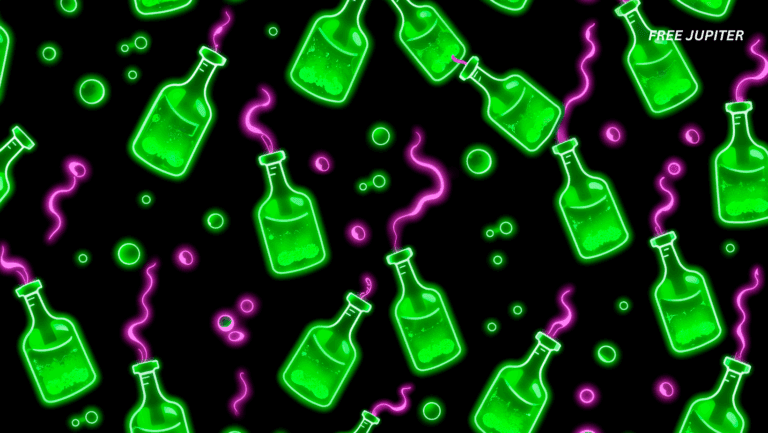Alcohol’s reputation as a social lubricant is well established, but for some, its role quietly shifts from occasional indulgence to a daily necessity. While many imagine alcohol dependence as something that derails careers or relationships, the reality can be much more subtle. There’s a group of people who manage to keep up with life’s demands-excelling at work, maintaining friendships, and caring for family-while quietly struggling with a hidden reliance on alcohol. These individuals are often described as high-functioning alcoholics, and their challenges are easier to overlook but no less serious.
Let’s take a closer look at the nuanced signs that could indicate someone is navigating life with this hidden burden.
What Does It Mean to Be a High-Functioning Alcoholic?
High-functioning alcoholism refers to people who drink heavily yet still manage their day-to-day responsibilities. On the outside, everything might look picture-perfect: a successful career, close relationships, and a busy social calendar. But beneath the surface, alcohol plays a much larger role than most realize.
This ability to “hold it together” often delays recognition of the problem-by the individual and those around them. In fact, research suggests nearly one in five people with alcohol dependence fit this description.
Read more: Things That No One Ever Tells You About Being A Functional Alcoholic
Nine Telltale Signs of High-Functioning Alcoholism
1. Restlessness or Irritability Without Alcohol
For many, missing a drink is no big deal. But for someone with high-functioning alcoholism, skipping their usual glass can lead to agitation, anxiety, or even physical symptoms like sweating or a racing heartbeat. These reactions are signs that the body has grown accustomed to regular alcohol intake and is struggling to adjust without it.
2. Prioritizing Drinking Over Meals
When alcohol becomes more appealing than food, it’s a red flag. High-functioning alcoholics may routinely choose to drink rather than eat, or they might use mealtimes as an excuse to pour another drink. This behavior can lead to nutritional deficiencies and other health problems over time.
3. Inability to Stop at One or Two Drinks
Social drinkers often know their limits, but high-functioning alcoholics tend to lose track. They might consistently finish other people’s drinks or always push for “just one more round.” The urge to keep drinking, even when others have stopped, is a hallmark of this pattern.
4. Rarely Experiencing Hangovers
Some might envy the ability to wake up fresh after a night of heavy drinking, but for high-functioning alcoholics, this is a sign that their body has adapted to frequent alcohol use. Over time, their tolerance increases, and typical hangover symptoms-headaches, nausea, fatigue-become less pronounced. This adaptation, however, masks the underlying strain on their health.
5. Always Having a Reason to Drink
Stressful day at work? Trouble sleeping? Celebrating good news? High-functioning alcoholics are adept at finding reasons to justify their drinking. These rationalizations can become increasingly elaborate, making it easier to ignore the growing problem.
6. Blackouts or Memory Gaps
It’s not uncommon for someone with high-functioning alcoholism to lose track of what happened during periods of drinking. Even if they appear in control, they may later have no memory of conversations or events. These blackouts are a clear sign that alcohol is interfering with brain function.
7. Defensiveness or Denial When Confronted
When friends or family raise concerns, high-functioning alcoholics often react with denial or even anger. They may insist they have everything under control or dismiss the issue entirely. This defensiveness makes it difficult for loved ones to help.
8. Noticeable Personality Shifts While Drinking
Alcohol can bring out a different side in anyone, but for high-functioning alcoholics, the transformation can be dramatic. A calm and responsible person might become impulsive or irritable after a few drinks. These shifts are often more pronounced than what’s seen in casual drinkers.
9. Going to Great Lengths to Conceal Drinking
Perhaps the most telling sign is secrecy. High-functioning alcoholics may hide bottles, drink alone, or sneak alcohol into nontraditional settings like the office or car. This effort to keep their drinking under wraps is a strong indication that they recognize-on some level-that their behavior is problematic.
Read more: Radical New Study Suggests Alzheimer’s Has a Single Root Cause
Why Are These Signs So Easy to Miss?
The very nature of high-functioning alcoholism makes it hard to spot. Because these individuals maintain their responsibilities and often excel in their roles, their drinking rarely draws attention. Friends and colleagues may even joke about their “impressive tolerance” or “love of a good time,” not realizing these are warning signs, not badges of honor.
Moreover, the person themselves may not see their drinking as an issue. The absence of obvious consequences-missed work, legal trouble, or damaged relationships-reinforces the illusion of control. But over time, the risks accumulate, both physically and emotionally.
How High-Functioning Alcoholism Differs from Other Forms
While the classic image of alcoholism involves visible struggles-job loss, isolation, or health crises-high-functioning alcoholics often avoid these pitfalls, at least temporarily. They may:
- Appear outwardly successful and well-adjusted
- Manage to keep up with work, family, and social obligations
- Downplay or joke about their drinking habits
In contrast, those with more visible forms of alcohol dependence might struggle to maintain employment, experience noticeable health issues, or withdraw from social circles.
Read more: The 4 Worst Beverages to Drink on a Plane—and What to Drink Instead, According to a Dietitian
Risks and Long-Term Consequences
Even if the negative effects aren’t immediately obvious, high-functioning alcoholism carries serious risks. Over time, heavy drinking can lead to liver disease, heart problems, neurological issues, and mental health challenges like depression or anxiety. The longer the pattern continues, the harder it becomes to break.
What to Do If You Recognize These Signs
If you see these patterns in yourself or someone you care about, know that you’re not alone. High-functioning alcoholism is more common than many realize, and effective support is available. Early recognition and intervention can prevent more serious consequences down the road.
Here are some steps to consider:
- Reflect honestly on drinking habits and their impact
- Reach out to a trusted friend, counselor, or healthcare professional
- Explore resources and support groups dedicated to alcohol dependence
- Remember that recovery is possible, even if the problem feels invisible
Final Thoughts
High-functioning alcoholism thrives in the shadows, hiding behind the veneer of success and normalcy. But recognizing the subtle signs can make all the difference-transforming silent struggles into opportunities for support and change. If you or someone you know fits this description, taking the first step toward help can be the most courageous move of all.










